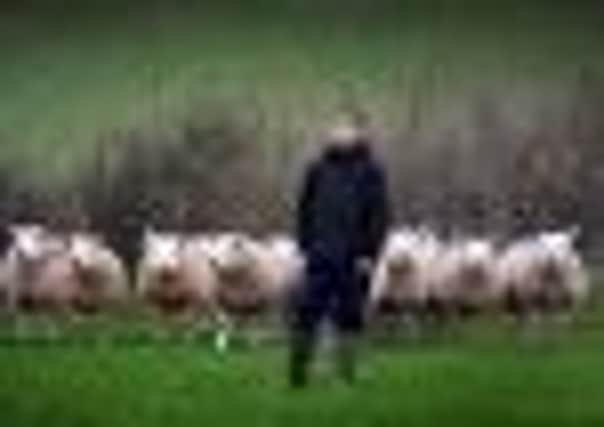Nothing sheepish about farm boy with big ideas


Farmers at a pedigree sheep event last week were surprised to find themselves outbid for the prize-winners of the day by the 12-year-old.
And it was no stunt. William was spending his own money, saved from the egg business he has been running since he was 10, with 130 genuinely free-range layers producing about 100 eggs a day.
Advertisement
Hide AdAdvertisement
Hide AdHe goes out at 7am daily to let them out of their shed, locks them up before going to bed at night and mucks out every weekend. And he and his mother, Julie, deliver the eggs locally at £2.50 a dozen.
He is now moving into sheep breeding and he took his cheque book to the Northern Texel Sheep Show and Sale of pedigree females at Skipton on Saturday, December 3.
The judge. David Burkill, who runs the Beechtree Texel flock at Driffield, awarded first prize to a shearling ewe from the Beautry flock of Stuart Currie at Rathmell, near Settle, and second prize to another young ewe from Angela Nairey’s Meinspride flock, based at Liusey, near Blackburn.
And William agreed on the judgment. Bidding in the old English currency, which is still traditional at pedigree sales, he paid 1,440 guineas (£1,512) for the first animal and 1,150gns (£1,207) for the other – the top prices of the day.
Advertisement
Hide AdAdvertisement
Hide AdHe also bought two cheaper ewes, at 550gns and 280gns, taking his total spend on the day to nearly £3,500.
For the benefit of younger generations who do not bid at livestock markets, a guinea means 21 old shillings, or 105p. The name refers back to the first machine-minted English coin, which was made of gold from the Guinea region of West Africa.
William took his new stock home to Hellifield, near Skipton, where his father, Paul, deals in stone.
Mr Watson is also a buyer for Dunbia, a big meat processor, and well known around the auction markets. And he runs a few commercial cross-breed cattle and sheep on their home smallholding.
Advertisement
Hide AdAdvertisement
Hide AdBut the Texel flock is William’s own project and he did his own research on what was interesting in the sale catalogue and what he might expect to pay.
He consulted neighbours John and Linda Mellin at Hull House, Hellifield, who already have a name in Texel circles.
It was seeing and admiring their flock that set him off on his new venture and he bought six from them a few weeks before heading for the Skipton sale – making his total investment so far about £6,000.
William does not yet have a ram but the two prize animals he bought at Skipton are already in lamb to top-quality sires and one is carrying twins. All the others he has bought in lamb and should start delivering in February.
Advertisement
Hide AdAdvertisement
Hide AdFrom routine scanning, he knows in most cases whether he is expecting twins or singles. But he does not know of which sex. A bid for a pregnant sheep is basically a bet.
But sometimes that bet can pay off in fine style.
“I think it spurred him on,” said his father yesterday, “when our neighbour sold a tup lamb at Carlisle for 36,000 guineas.”
William is a pupil at Settle Middle School, where he has friends like him who are already planning a career in farming.
“That’s what I want,” he said.
“I did used to say I wanted to be a racing driver but that was when I was very young.
Advertisement
Hide AdAdvertisement
Hide Ad“I help my dad out with his sheep and I just like the look of Texels. They are just nice big strong-looking animals.”
Most of his new flock are about twice his size, in fact, but he is learning to hold them, with an eye on exhibiting at Gargrave Show next summer.
Texels are a burly breed, originally from the Continent, which have won themselves an important role in the UK meat industry.
In the mood for festive Moo-sic
It may sound udderly ridiculous, but a government quango set up to promote dairy farming has released a collection of Christmas songs put together from North Yorkshire cows’ moos.
Advertisement
Hide AdAdvertisement
Hide AdDairyCo, an organisation funded by a levy on farmgate milk prices, got the cow noises from Easby Grange, Stokesley, near Middlesbrough, where farmer John Chapman recorded them on his smartphone.
Then DairyCo got the digitalised sounds chopped up and re-assembled into tunes including Silent Night, Jingle Bells and other compositions which might appeal for ringtones, message alerts and alarms.
The moo-sic is available, in MP3 format, at www.mootunes.org